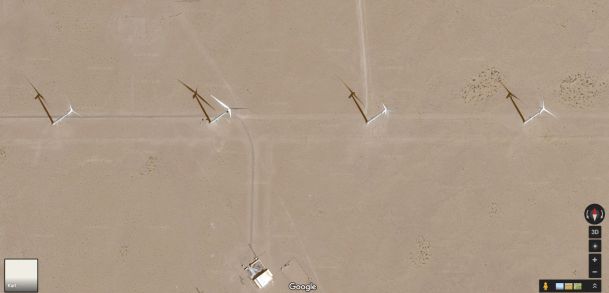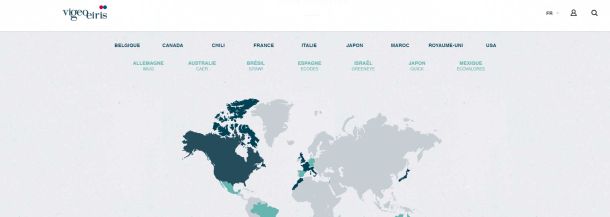
The French company Engie has since 2023 been installing windmills in occupied Western Sahara for a massive project that would lead to the large-scale settlement of Moroccan farmers in the occupied territory.
The Engie project - possibly the most controversial of all foreign projects currently going on in occupied Western Sahara today - consists of transforming seawater into fresh water, which in turn will be channeled through an irrigation system into the desert. There, a massive agriculture project is being built for the benefit of Moroccan illegal settlers.
The project is carried out with the Moroccan government. In all its external communication, and its known reports and contracts, Engie refers to the location of the project as in “Morocco” and shows a total disregard for the UN's approach to the conflict.
“The Sahrawi National Assembly strongly condemns the blatant involvement of the Engie company in the consolidation of the illegal Moroccan occupation in the territory of Western Sahara”, stated Deputy-Speaker of the Saharawi Parliament, Abdalahi Elmerkhi.
Western Sahara Resource Watch has received images taken in front of the Saharawi parliament on 27 June, the closing day of the parliament's winter session, where Elmerkhi gave comments to the matter.
He stated that they “demand the cancellation and withdrawal of all projects and activities of the Engie company in the territory of Western Sahara”.
The Saharawi parliament is based in the refugee camps in Algeria.
Instead of obtaining consent from the people of the territory, as is required under international law, Engie has obtained all permits from the neighbouring country of Morocco. In addition, it contracted a French firm Global Diligence to enter into an alleged “stakeholder consultation” with what is most likely Moroccan interests on the occupied territory. WSRW has asked for the immediate publication of the Global Diligence study
It is exactly this sort of misleading “consultation process” with Moroccan interests that is being tried in the ongoing court case in European Court of Justice, where a ruling on EU-Morocco trade agreements is expected later this year.
The project is located 130 kilometers north of Dakhla.
Western Sahara Resource Watch and the French association APSO wrote Engie on 11.01.2019 and on 09.12.2020. Engie responded on 13.04.2021. WSRW sent a new letter on 17.05.2021, 22.05.2023 and 22.09.2023. The letter was responded to on 28.09.2023, without the company addressing any of the questions it had been asked. WSRW wrote Engie again on 13.10.2023, responded by Engie 16.10.2023.

Download high resolution.


Since you're here....
WSRW’s work is being read and used more than ever. We work totally independently and to a large extent voluntarily. Our work takes time, dedication and diligence. But we do it because we believe it matters – and we hope you do too. We look for more monthly donors to support our work. If you'd like to contribute to our work – 3€, 5€, 8€ monthly… what you can spare – the future of WSRW would be much more secure. You can set up a monthly donation to WSRW quickly here.
Bureau Veritas backs Moroccan Prime Minister in occupied Western Sahara
The firm announces it will render its services to a project that raises deep concerns over international law and human rights.
WSRW asks French ENGIE about business ethics
The French multinational ENGIE operates in occupied Western Sahara. WSRW today wrote the company, asking how they consider the legal-ethical aspects of such operations.
Vigeo Eiris: two years without answer on support to occupation
The UK-French company Vigeo Eiris certified and defended a Moroccan-Saudi energy project in occupied Western Sahara. WSRW calls on the board to engage on the matter.


